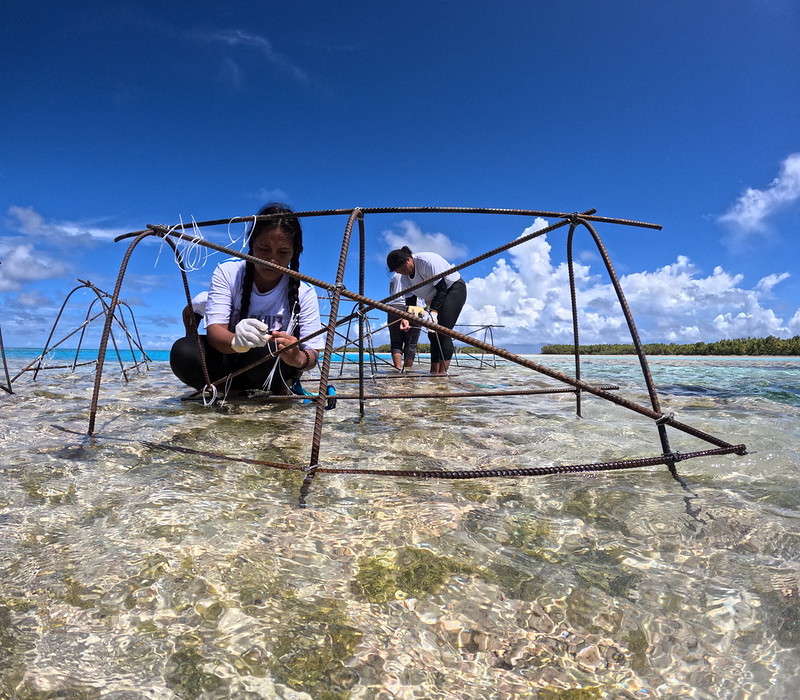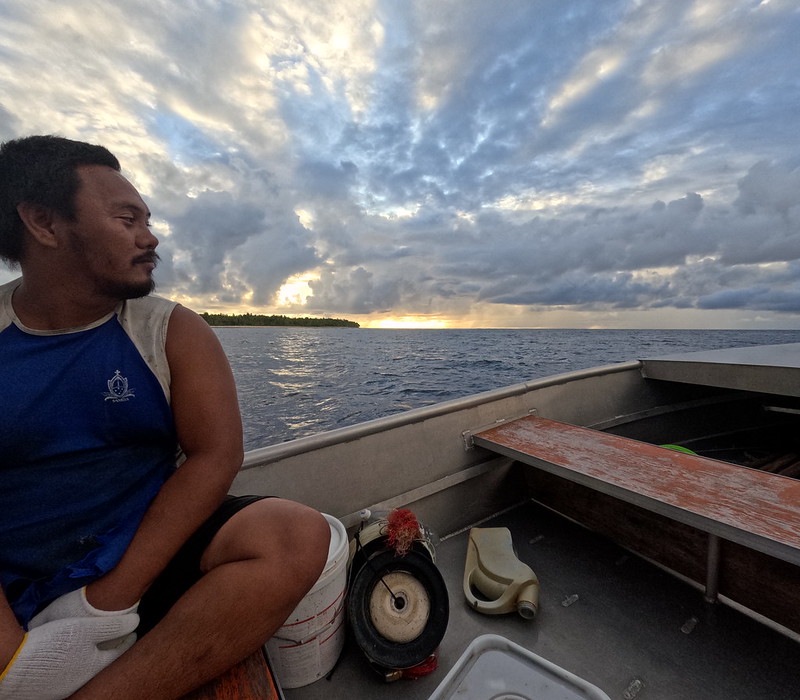By Dirk Wagener, UN Resident Coordinator to Fiji, Solomon Islands, Tonga, Tuvalu, and Vanuatu
Last week, we marked two key international days that are particularly close to the hearts and realities of Pacific Peoples – World Environment Day (June 5) and World Oceans Day (June 8).
As custodians of the Pacific Ocean and the natural environments which surround it, Pacific Island Peoples know only too well the intertwined relationship between humanity and the planet’s life-sustaining systems.
Although celebrated as two different days, their significance and interconnectedness, especially in the Pacific, are an opportunity to highlight the criticality of preserving and protecting our environment and our oceans, which serve as the lifeblood of our planet.
Across the Pacific, including the countries in which I serve – Fiji, Solomon Islands, Tonga, Tuvalu, and Vanuatu – the ocean is not simply a vast expanse of water; it is an integral part of the cultural heritage, livelihoods, and identities of people – a blue Pacific continent as some refer to it. For generations, the oceans have provided sustenance, transportation, meaning, and inspiration. They are home to a stunning marine biodiversity, supporting countless marine species and ecosystems that contribute to the well-being and prosperity of our communities.
Despite their significant importance, our oceans continue to face unprecedented challenges.
Climate change, pollution, overfishing, ocean acidification and habitat destruction threaten the health and resilience of marine ecosystems. Rising sea levels and extreme weather events pose existential threats to low-lying coastal communities, exacerbating vulnerabilities and displacing populations.

As we reflect on World Environment Day and World Oceans Day, I am calling on all to renew our pledge to protect and conserve our oceans. This year’s theme, “Ecosystem Restoration,” reminds us of the urgent need to heal and revive our degraded marine ecosystems. By restoring mangroves, coral reefs, and coastal habitats, we can enhance biodiversity, mitigate climate change, and strengthen the resilience of coastal communities.
Some of you might recall that the conclusion of the 15th Conference of Parties to the UN Convention on Biological Diversity (CBD) in 2022 saw the adoption of the Kunming-Montreal Global Biodiversity Framework. It was both encouraging and unsurprising to note the strong support from Pacific nations to ensure its realization.
This Framework, aimed and halting and reversing nature loss, was adopted following the sharp documented decline in nature, threatening the survival of 1 million species and impacting the lives of billions of people.
By reducing plastic pollution, improving waste management systems, and implementing effective fisheries management strategies, we can mitigate the impacts of human activities on our oceans and marine life.
Just last month in Nadi, the CBD Secretariat partnered with the Secretariat of the Pacific Regional Environment Programme (SPREP), the Fiji Government, UN Food and Agriculture Organization (FAO) and United Nations Environment Programme (UNEP) to host a sub-regional dialogue on the National Biodiversity Strategy and Action Plans for Pacific countries.
Participating Pacific nations included Cook Islands, Federated States of Micronesia, Fiji, Kiribati, Nauru, Niue, Palau, Papua New Guinea, Republic of the Marshall Islands, Samoa, Solomon Islands, Tonga, Tuvalu, and Vanuatu. A great turnout to safeguard and sustainably use biodiversity through addressing the root causes of ocean pollution and overfishing by promoting sustainable practices and strengthening marine conservation efforts.
It has been encouraging to learn that the Pacific is on track to achieve some of the key targets of the Framework, including Target 3, which aims to ensure that by 2030, at least 30 percent of terrestrial, inland water, and coastal and marine areas are effectively conserved and managed through systems of protected areas and other conservation measures.

Many Pacific countries have already achieved this target well ahead of schedule.
As well as acknowledging the direct impacts these actions can have, we must also recognize the interconnectedness of environmental sustainability, social equity, and economic development. Building forward better from the COVID-19 pandemic and other disruptions requires an holistic approach that integrates environmental conservation, climate resilience, and inclusive growth. By investing in green technologies, renewable energy, the blue economy, and nature-based solutions, we can create new opportunities for sustainable development while protecting our precious natural resources.
As representative of the UN Secretary-General, I stand in solidarity with Pacific governments, civil society, private sector, and individuals in our collective commitment and resolve to safeguarding our oceans and environment. We must take bold and decisive action to address these challenges and ensure the sustainable management of our marine resources for current and future generations.
As we reflect on World Environment Day and World Oceans Day, let us recommit ourselves to the vision of a healthy and thriving planet where oceans are teeming with life, and communities continue to live in harmony with nature. Together, we can be even greater stewards of our ocean legacy, ensuring that it endures for generations to come.















